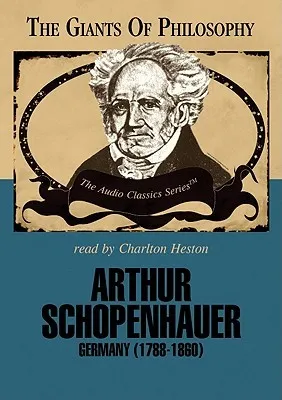Arthur Schopenhauer
By (author): "Charlton Heston, Mark Stone"
Publish Date:
October 1994
ISBN0786169400
ISBN139780786169405
AsinArthur Schopenhauer
Original titleArthur Schopenhauer
SeriesThe Giants of Philosopy
Schopenhauer emphasized the dark aspects of existence. Evil, pain and suffering are not aberration: they express the inner nature of the world. He is pessimistic about the true nature of existence; suffering and pain outweigh the rewards in life and they're central to the riddle of existence. There are two basic aspects to the world: representation (visible appearances) and will (hidden reality). Will is a unitary, blind, irrational force underlying all nature and expressing itself throughout it. This will is a single metaphysical reality, and each person's experience is a sort of window into it. Our true motives for action are often hidden from us because our own will is mostly hidden. Will, not reason, is the controlling force within us. Our will to live - our perpetual striving for life - is a continuing cycle of want, temporary fulfillment, and more want. New desires replace any satisfied ones, so no final or lasting happiness is possible. Our will to live - is doomed ultimately to fail, and we die. There is no overall end or purpose of life, though art offers an escape from an otherwise painful existence. The artist is a genius who can sustain aesthetic ("will-less") contemplation; music expresses the Will itself.Human actions are propelled by the will, so prescriptive ethical rules have little force ("willing cannot be taught"). But there are four progressive stages of moral behavior; egoism, enlightened self-interest, altruism, and asceticism (denial of the senses and the will to live).
